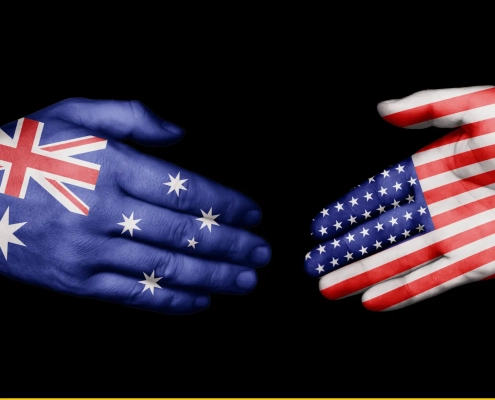Come grow with us in Singapore in the US in Thailand in China in Korea in the Philippines in Taiwan in Hong Kong in VietNam in Indonesia
Contact Us
US: +1 512 898-9222
SG: +65 3138-4148
EMAIL: Inquiry@asiaactual.com
Sources and Links
Thailand Implements New Medical Device Regulations
Published on: February 26th, 2021
On February 15th the Thai FDA published significant new guidance governing the classification, technical documentation requirements, fee schedule and transition plan for medical device registration. This much anticipated action harmonizes the Thailand’s Medical Device Act/Ordinance B.E. 2562 (2019) (Issue 2) with the ASEAN Medical Devices Directive. The guidance is effective immediately for all new registrations and means a substantially increased regulatory burden for the vast majority of medical devices.
Any applications under review will be processed according to the old rules. Any existing Import License will remain valid through its expiry date.
New Registrations
Applications submitted after February 15, 2021 will be subject to the new Rules. Class 2, 3, and 4 application will need to submit their applications in a format that closely aligns to the CSDT under either the Notified or Licensed route. For the first 3 years, the TFDA will allow for some documentation, like Risk Analysis and Proof of Foreign Country Approval, to be exempted from new applications but will then need to be provided during the review. For manufacturers with existing, fully completed CSDT files, it is recommended that the full document be submitted now though not all components are required.
Home country approval will no longer be required. Some documents like the Instructions for Use (IFU) and Labeling will need to be translated into Thai. Registrations will be valid for 5 years.
Products Already Registered
The Thai FDA has also provided transition guidance for products currently registered allowing for partial renewal applications to be submitted, generating an Import License good for 5 years. After this 5-year period, a full submission will be required. Products expiring in 2021 can be renewed with less documentation while registrations expiring in 2022 or beyond (under the old system) will require most of the CSDT documentation.
New Medical Device Classification System
The new regulations transition to a risk-based classification system based on ASEAN MDD guidance. Formerly most medical devices fell under the General Medical Device category and were subject to a simple listing process. Only handful of medical devices were subject to the more rigorous Notification and Licensing reviews. Now all Class 2, 3 and 4 device applications will require full technical data in Common Submission Dossier Template (CSDT) format with a grace period for some documents. Medical device Import License applications will need to be submitted via one of three routes (from low risk to high): Listings, Notifications, and Licenses. Certificates of Free Sale will no longer be required as part of the registration process.
| Risk Classification | Registration Pathway |
| Class 1 medical devices | Listing
Government Fees: $105 Review Timeline: 200 days (formerly applied to General Medical Devices with 10 day processing time) |
| Class 2 and 3 medical devices | Notification
Government Fees: $1,080 Review Timeline: 250 days (formerly applied to a handful of devices) |
| Class 4 medical devices | Licensing
Government Fees: $1,775 Review Timeline: 300 days (formerly applied to a handful of devices) |
Technical Documents in Common Submission Dossier Template (CSDT) Format
Notified and Licensed (Class 2, 3, and 4) Medical Device applications must adhere to the CSDT and will require the following documentation:
- Executive Summary
- Device Description
- Intended use
- Indications
- Instruction for use
- Storage condition
- Shelf life
- Contradictions
- Warnings
- Precautions
- Potential adverse Effects
- Alternative Therapy
- Materials
- Other Relevant specifications
- Other descriptive Information
- Device Labelling
- Detailed Manufacturer Information
- Essential Principles of Safety and Performance of Medical Device and Method Used to demonstrate conformity (Not Required for 3 years)
- Summary of Design verification and validation documents
- Risk Analysis (Not Required for 3 years)
- Method of destruction
- Quality Management Certification
- Letter of Certification of the intended use/indication/ Package, Letter of certification of label and instruction for use from manufacturer or product owners
- Declaration of Conformity
- Letter of Confirmation for market history proof from manufacturer
- Letter of Safety confirmation from manufacturer
- Proof of approval from Medical Device Regulatory Authority in Foreign Countries (Not Required for 3 years)
- Letter of Authorization as Distributor for Manufacturer
- Grouping indication letter
Listed (Class 1) Product applications will require the following documents:
- Import Licensed Establishment
- Authorization letter
- The documents that indicate names and information of medical device including Label, manufacturer and user manual
- History of the registration in other countries.
New Fee Schedule for Medical Device Registration Processing
| Registration | Application Fee | Specialist Review Fee | Approval Fee | Total |
| Class 1 (Listings) | 500 Baht | 600 Baht | 2,000 Baht | 3,100 Baht (US$105) |
| Class 2 and 3 (Notifications) | 1,000 Baht | 20,000 Baht | 10,000 Baht | 31,000 Baht (US$1,080) |
| Class 4 (Licenses) | 1,000 Baht | 30,000 Baht | 20,000 Baht | 51,000 Baht (US$1,775) |
A summary of the changes has been included below.
New Grouping Guidance
The Thai FDA also issued new grouping guidance, allowing device applications to fall into 7 groups adhering to 3 rules.
| Application groups can be:
1. Single 2. Family (similar design or variations) 3. System (devices that work together) 4. Set (2+ devices sold and imported together) 5. IVD Test Kits (not including analyzers) 6. IVD Cluster (same manufacturer and methodology) |
Products within a Group must all have:
1. One generic proprietary name 2. One product name 3. One common intended purpose |
To learn more about Grouping in Thailand, please go to our Grouping page that contains the full set of rules and examples for the various options.
Guidance Documents
| Guidance Document Name | Purpose | Link |
| Ministerial Regulations, Medical Device Products required Listing Approval | Outlines classification criteria for a Class 1, Listing category. | Thai |
| Ministerial Regulations, Medical Device Products required Notification Approval | Outlines classification criteria for a Class 2 or 3, Notification category. | Thai |
| Ministerial Regulations, Medical Device Products required License Approval | Outlines classification criteria for a Class 4, Licensing category. | Thai |
| Ministerial Regulations, Medical Device Products required Listing Approval | Outlines documentation requirements for a Class 1 Listing Approval process | Thai |
| Ministerial Regulation: Notification Manufacture or Import Medical Device 2020 | Outlines documentation requirements for a Class 2 or 3 Notification Approval process | Thai |
| Ministerial Regulations, Application for Permit and Issuance of License Manufacture or Import Medical Device, 2020 | Outlines documentation requirements for a Class 4 Licensing Approval process | Thai |
Come Grow with Us
Contact Asia Actual if you’d like to learn how this new regulation update might affect your sales in Thailand.
Asia Actual is a regulatory consulting company specializing in helping manufacturers grow their sales through independent license holding, direct fulfillment, and a variety of sales channel support services.






